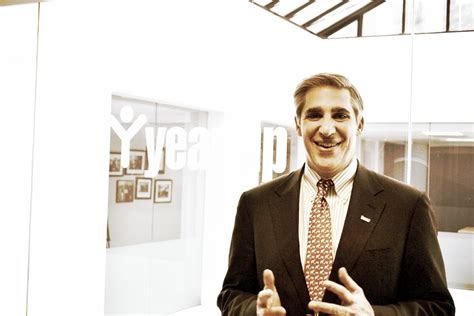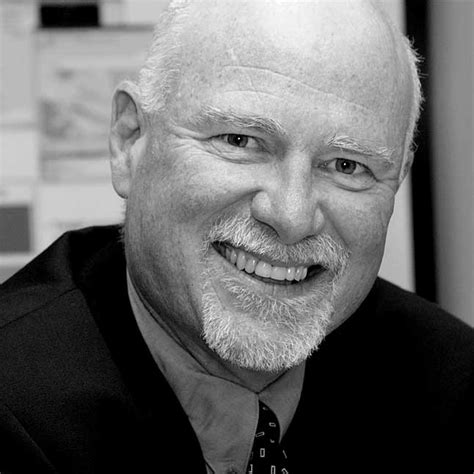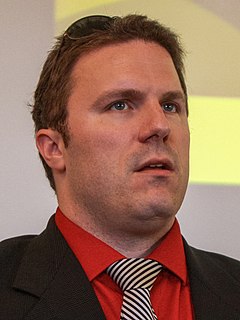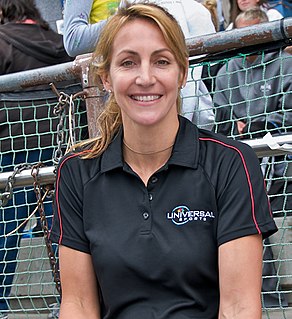A Quote by Gerald Chertavian
When we think about the workplace, people think about hard skills being dominant, but they're not. The employer realizes knowledge will shift quickly, and there's a half-life to knowledge in this world.
Related Quotes
It's very important to distinguish between what most people in the West think about knowledge, and what the Indian concept of knowledge is. In the West the knowledge is something that is tangible, is material, it is something that can be transferred easily, can be bought and sold; or as in India real knowledge is something that is a living being - is a Vidya.
There's an awful lot of misunderstanding here about what being poor actually means. I don't think people understand that being poor means you have to work from dawn until dusk just to survive through the day. I think there's some notion that poor people lie about all day not doing anything. It is remarkable how many misconceptions there are here about life in the developing world and I think that that knowledge gap has done a lot to contribute to the imbalance quite frankly.
I feel that all knowledge should be in the free-trade zone. Your knowledge, my knowledge, everybody's knowledge should be made use of. I think people who refuse to use other people's knowledge are making a big mistake. Those who refuse to share their knowledge with other people are making a great mistake, because we need it all. I don't have any problem about ideas I got from other people. If I find them useful, I'll just ease them right in and make them my own.
Edward Snowden's real "crime" is that he demonstrated how knowledge can be used to empower people, to get them to think as critically engaged citizens rather than assume that knowledge and education are merely about the learning of skills - a reductive concept that substitutes training for education and reinforces the flight from reason and the goose-stepping reflexes of an authoritarian mindset.
So the problem in the West is that, especially in places like the USA, a person will obtain this much knowledge and immediately think that they have a large amount of knowledge. And then start to act on the basis of what they think, they posses. Instead of having this much knowledge and realizing that in fact this is only this much knowledge and the amount of where you can go there is where you came is much bigger than where you've already gotten.
Julie Taymor. She is my gold standard of stage directors. I think she has a comprehensive knowledge of theatrical form, since she lived in Indonesia, Java, Japan and France. Her knowledge of form is limitless. Whenever I get painted in a corner, I think about what form she would use, because that is what she practices. It's about accessing the theater traditions of the whole world.
I have a great affection for people who are intellectually engaged with the world, and who don't treat everything superficially. And I think, when people talk about nerdiness, what they're really talking about is smart people who who are trying to think hard about the world. And I don't think that's an insult, I think that's a great thing.
I'm skeptical about even educating voters as a chance for being successful. You know, when we look at what people retain from high school a year after they've graduated, they've forgotten most everything about history and civics and everything, and I think the main worry here is that because your individual vote counts for so little, you just don't have a strong incentive to invest in the knowledge, to retain the knowledge, to process information in a rational way.
Real artists find answers. The knowledge of the artisan is within the confines of his skills. For example, I know a lot about lenses, about the editing room. I know what the different buttons on the camera are for. I know more or less how to use a microphone. I know all that, but that's not real knowledge. Real knowledge is knowing how to live, why we live, things like that.
What being among the 'right people' entails is the possession of human capital, rather than organizational capital: an individual reputation, portable skills, and network connections. Career responsibility is squarely in the hands of individuals, a function of their knowledge and networks. Transferable knowledge is more important to a career than firm-specific knowledge.
To be a champion, I think you have to see the big picture. It's not about winning and losing; it's about every day hard work and about thriving on a challenge. It's about embracing the pain that you'll experience at the end of a race and not being afraid. I think people think too hard and get afraid of a certain challenge.


































